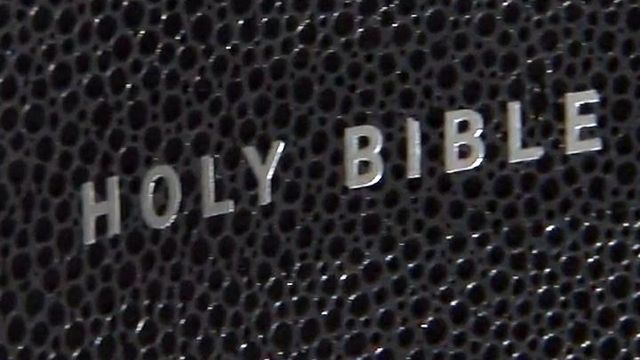Bible study tricky proposition for NC schools
Although the Wake County Public School System and several other districts have taught the Bible from a historical perspective in recent years, a legislative proposal to create a Bible study elective in North Carolina high schools creates a thorny issue for teachers.
Posted — Updated"If we want to provide a well-rounded education for students, certainly we want that to include religious experience for human beings," said Jeremy Hustwit, chairman of the Department of Philosophy and Religion at Methodist University in Fayetteville.
Hustwit said poetic and lyrical biblical verses have inspired kings and presidents through the ages.
"Everything from Shakespeare to legal documents reference passages from the Bible," he said.
The American Civil Liberties Union says, however, that Bible study should be left to the home and church.
"(It's) notoriously difficult to teach in a constitutional manner," the ACLU says.
Bingham's bill states that the class would maintain religious neutrality, allowing students to learn the "history, style (and) societal influence" of the Bible.
"We teach religion as part of our course – not necessarily the theological aspects, but the history of religion. So, it's kind of in our curriculum in different ways," said Kevin Hight, a social studies teacher at Terry Sanford High School.
Hunter Bell, a senior at Terry Sanford High, said he doesn't see a Bible study class "intruding" on anyone.
"Even if you're not a Christian, it would be an opportunity to give you that much more knowledge about a subject that's common. You know, you're going to see it in life," Bell said.
Hustwit said that stance is a red flag for him.
"The idea that you can introduce the Bible – just one religious text – as a historical document without including any of the others" is unbalanced, he said.
Students should learn about the sacred texts of many religions if they're going to learn about the Bible, he said.
• Credits
Copyright 2024 by Capitol Broadcasting Company. All rights reserved. This material may not be published, broadcast, rewritten or redistributed.






